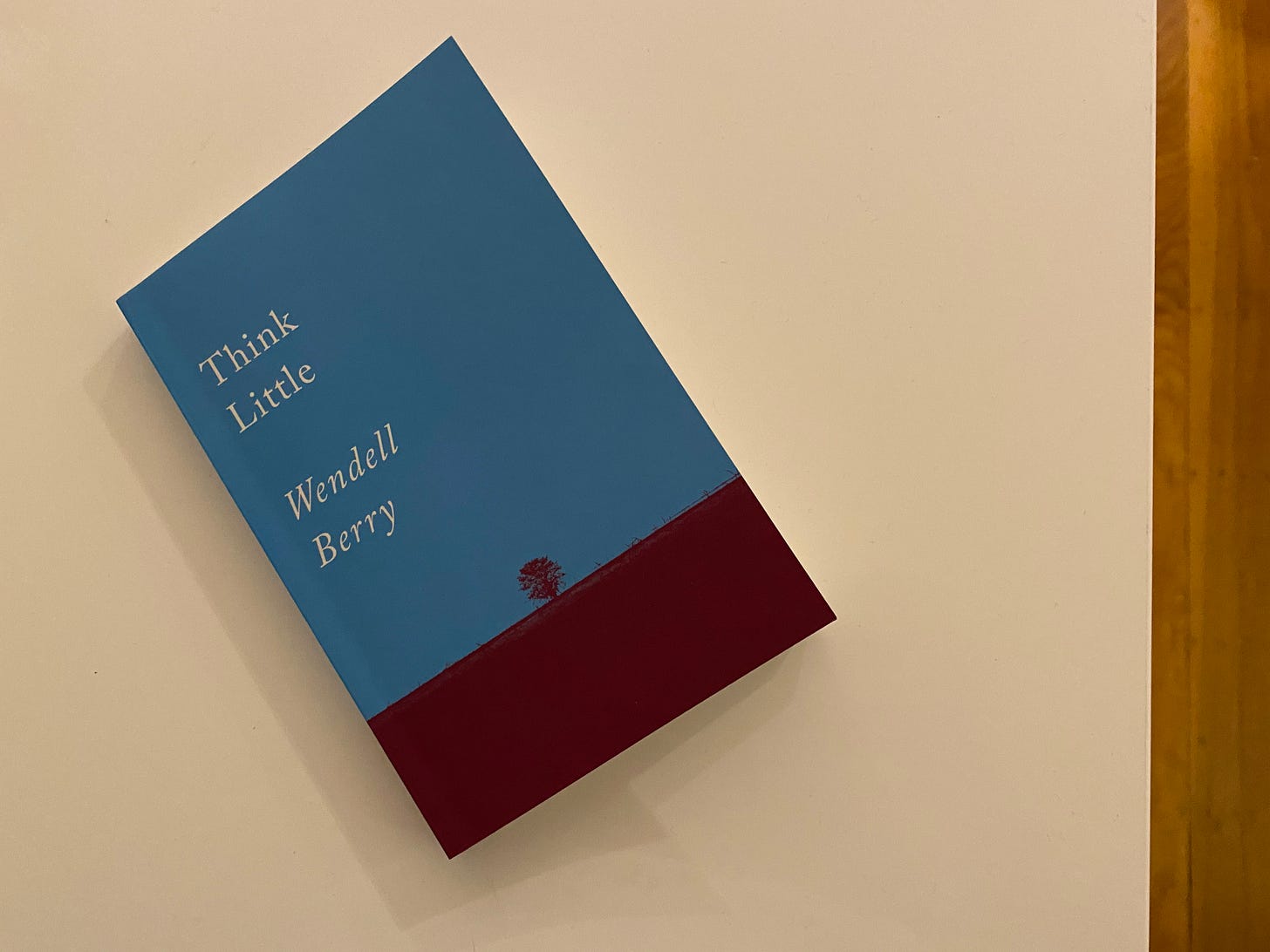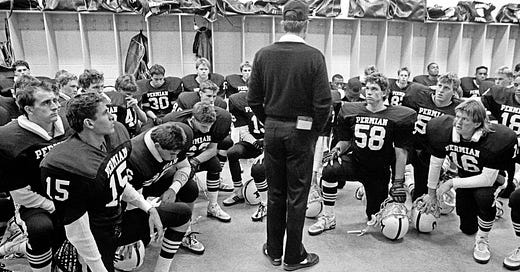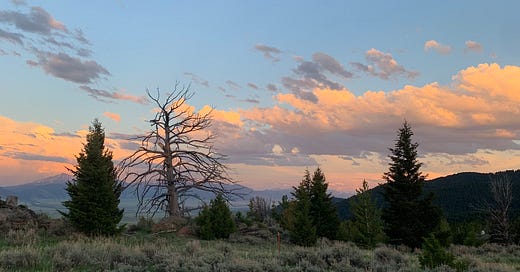

Discover more from Writing from Kate & Ali
Dear Ali,
I miss you. I can’t believe your road trip begins in just a few days. Please drive the speed limit.
When you arrive in Silicon Valley, you will find that I have become very cool. I bought a bike, and also a helmet. The saleswoman made fun of me for requesting the color “basic black.” Last weekend, I went to a farmers market and drank some “nitro coffee.” I am growing herbs in my backyard. I now wear large tortoiseshell glasses (this is because I have gone blind from reading, but please see it first and foremost as a fashion choice). I am seeking “venture capital” to fund my promising sad-short-story-writing business.
I also watched Steve Jobs. I thought the movie was kind of boring, but didn’t fall asleep on the couch, so...make of that what you will!
Steve Jobs is structured around some product launches, culminating in the release of the iMac. That’s the computer—blue, transparent, bulbous—that filled our elementary schools. We learned to type and “paint” and search the Internet on iMacs. I take them for granted. I don’t think of that goofy-looking computer as part of the digital revolution, though it was.
Maybe that’s because the allure of Apple and Jobs transcends any physical computer. It has to do with “brand” and “culture” and “aesthetic.” It has to do with “identity” and “appeal.” It has to do with black turtlenecks and a creepy commercial: not the size of a hard drive or the...tightness of the code? (Let’s go with tightness.)
At one point in the film, Steve Wozniak (played by Seth Rogan), the engineer who built circuit boards with Jobs in a garage, gets angry. “You can’t write code. You’re not an engineer. You’re not a designer,” he insists. “So how come ten times in a day, I read Steve Jobs is a genius? What do you do?”
I share Steve Wozniak’s frustration. Not with Steve Jobs, necessarily: he was obviously smart and inspired and industrious. I love my MacBook. But behind the slogans and dreams and promises of Silicon Valley, the question lingers: Who is doing the real work? False idols like Elizabeth Holmes and Adam Neumann reveal how much trust (and money) we invest in founders with charisma, rather than the engineer at her desk, or the factory worker assembling the device, or the janitor cleaning up spilled beer at WeWork.
Silicon Valley is all about thinking BIG. Imagine first! Do later. Or don’t do it at all.
So this week, in protest, I recommend Thinking Little.
My book pick:

Thinking Little is a re-release (by the wonderful Berkeley press Counterpoint) of two essays by Wendell Berry. Berry, a Kentucky novelist and essayist and farmer, often writes about localism and the environment. He’s curmudgeonly and earnest. This palm-sized collection contains two essays. The longer one, “A Native Hill,” tells the story of Berry’s family land, and considers what it means to be bound to a place. It’s beautiful.
But the book’s namesake essay, “Think Little,” is the one I’m especially recommending to you today. It was written in 1979, but feels very 2020. Berry blames corporations and government entities for “thinking big” about racial injustice, war, and environmentalism: aka for being all talk and no action. He blames the average citizen for thinking racism is “the fault of someone else.” He blames people for joining “the fads and fashions of protest,” repeating slogans and shaming others rather than understanding issues. (Apparently, people were unhelpfully woke even in 1979.)
He blames all of us for being too abstract, rather than paying attention to what we can do right now.
The discipline of thought is not generalization; it is detail, and it is personal behavior.
Want to help the environment? Instead of founding a carbon-capture start-up, Berry suggests planting a garden in your backyard. Instead of joining an organization or posting a slogan, he recommends picking up cans and bottles on the road. Instead of developing a brand persona around climate change activism, he proposes taking shorter showers. Or driving your car less. This is:
a new kind of life—harder, more laborious, poorer in luxuries and gadgets, but also...richer in meaning and more abundant in real pleasure.
Berry isn’t about the future. He’s not about the corporation, political candidate, or visionary founder that can save us.
He’s about the present. That means there’s no time to find angel investors or come up with a prototype or buy a black turtleneck. Right now, we need:
…better minds, better friendships, better marriages, better communities. We need persons and households that do not have to wait upon organizations, but can make necessary changes in themselves, on their own.
The book: Think Little
My rating: 🧑🌾🧑🌾🧑🌾🧑🌾🧑🌾 (five out of five)
Read more: “The Work of Local Culture”
Love,
Kate
Subscribe to Writing from Kate & Ali
Links & excerpts from two writer friends, Kate Lucky & Ali Montag.









